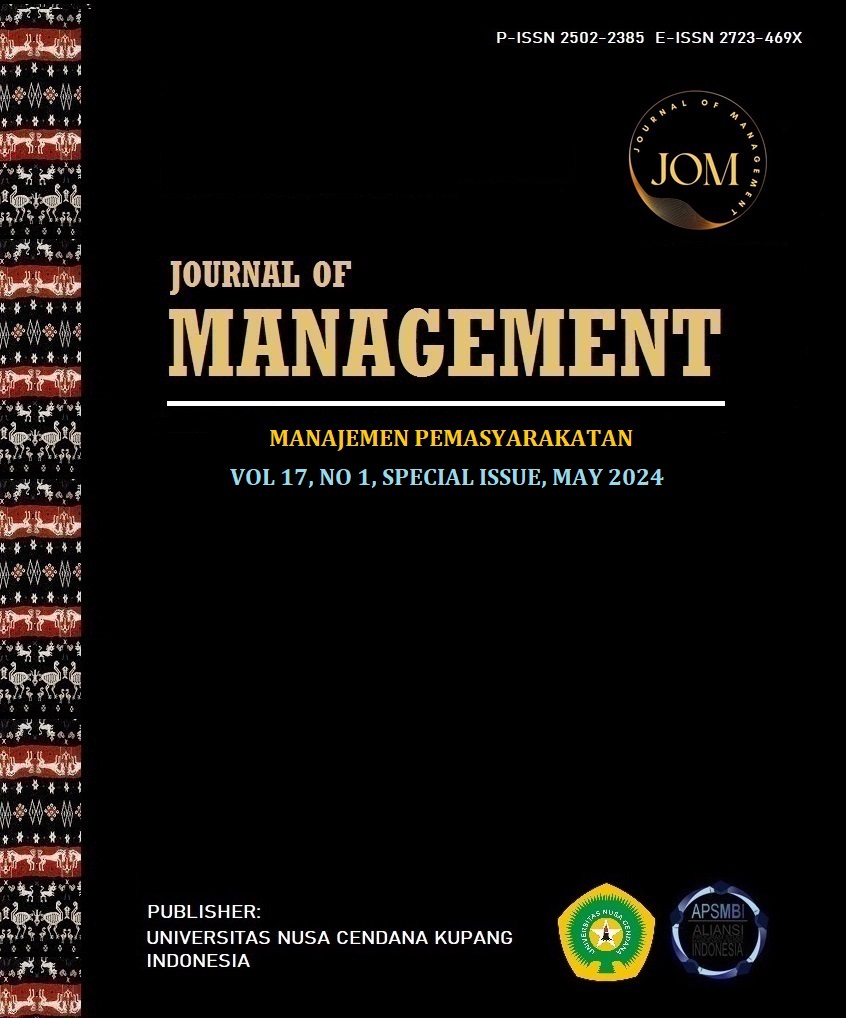MEMPERTIMBANGKAN URGENSI PERADILAN PIDANA ANAK DALAM TINDAK PIDANA : UPAYA PERLINDUNGAN GENERASI MASA DEPAN
Abstract
Various problems carried out by children are part of the actions that result in children being entangled in legal problems, with different legal problems considered minor problems, but according to the laws and regulations constitute a criminal act. This raises various questions about whether the juvenile criminal justice system can deal with this problem effectively, how youth involved in crime should be treated, and how aspects of rehabilitation and reintegration within this system play an important role in building a better future for children. These research methods according to their types can be divided into two, namely normative legal research and empirical legal research. Empirical legal research was carried out using interviews in the field, namely by carrying out it at the Manokwari Class I correctional center to know and obtain information from parties related to the research theme being carried out. We also studied cases of children in conflict with the law, which were successfully resolved outside of legal channels through a restorative justice diversion approach. The research location selection was carried out in the West Papua area based on the reason that Manokwari is one of the cities with high levels of child crime in conflict with the law is significant and relatively increasing. The results of the research show that there are still many children who do not understand the laws that result in criminal acts, which are regulated in the law on the juvenile criminal justice system, implementing legal awareness outreach activities for school children and providing guidance and increasing understanding of the law for children in the Manokwari City area.
Keywords: Criminal Justice System; Child Crime; Restorative Justice
Downloads
References
Darmika, I. (2019), ‘Pembaharuan Sistem Peradilan Pidana Anak Di Indonesia’, De’Rechtsstaat, 5.2 85–91
Feld, B. C. (1991). The juvenile court meets the principle of the offense: Legislative changes in juvenile waiver statutes. Crime and Delinquency, 37(2), 229-259.
Greene, S. (1998). The Generational Interests of Children: A Commentary on Principles of Justice and Theoretical Approaches to Juvenile Justice. New England Law Review, 32(3), 787-822.
Grisso, T. (2008). Adolescent offenders with mental disorders. The Future of Children, 18(2), 143-164.
Junger-Tas, J., & Marshall, I. H. (1999). The self-report methodology in crime research. Crime and justice, 26, 291-352.
Mamu, M., Pelleng, F. A., & Kelles, D, ‘Undang- Undang Peradilan Pidana Anak’, Экономика Региона, August, 2012, 32
Nugroho, O. C., ‘Peran Balai Pemasyarakatan Pada Sistem Peradilan Pidana Anak Ditinjau Dalam Perspektif Hak Asasi Manusia’, Jurnal HAM, 8.2 (2017), 161 https://doi.org/10.30641/ham.2017.8.356
Putri, T., Clara, A., and Hartiwiningsih, ‘Peran Balai Pemasyarakatan Dalam Penerapan Restorative Justice Terhadap Penyelesaian Perkara Anak Yang Berkonflik Dengan Hukum Berdasarkan Sistem Peradilan Pidana Anak (Studi Kasus Di Balai Pemasyarakatan Kelas I Malang)’, Recidive : Jurnal Hukum Pidana Dan Penanggulangan Kejahatan, 11.2 (2022), 197
https://doi.org/10.20961/recidive.v11i2.67453
Prakoso, A, Pembaruan Sistem Peradilan Pidana Anak, 2016
Purwanto, G., (2021), ‘Peran Pembimbing Kemasyarakatan Dalam Perspektif Udang-Undang Nomor 11 Tahun 2012 Tentang Sistem Peradilan Pidana Anak’, Justitiable, 3.2 2
Schwalbe, C. S. (2008). Legal consciousness and discretion in the new juvenile court. Law & Social Inquiry, 33(4), 993-1022.
Setyorini, E. H., and Pinto, U., ‘Hukum Dalam Sistem Peradilan Pidana Anak Pendahuluan Pada Upaya Membangun Rezim Hukum Anak Yang Berhadapan Dengan Hukum, Terdapat Fondasi Konvensi Hak Anak (KHA) Yang Relevan Untuk Mengimplementasikan Praktik Peradilan Anak, Yaitu : 1. Kepentingan Te’, 16 (2020), 149–59
Undang-undang Dasar, ‘Pasal 1 Undang-Undang Republik Indonesia Nomor 22 Tahun 2022 Tentang Pemasyarakatan’, 143384, 2022
United Nations. (1989). Convention on the Rights of the Child (CRC). Diakses dari https://www.ohchr.org/en/professionalinterest/pages/crc.aspx.
Yulianto, R. F., and Ali, M, ‘Peran Bapas Dalam Implementasi Sistem Peradilan Pidana Anak’, Journal of Correctional Issues, 4.1 (2021), 57–65
Woolard, J. L., & Scott, E. S. (2012). Why minors should be considered minors: An evaluation of the legal competencies of juveniles. Psychology, Public Policy, and Law, 18(4), 741-772.

 Abdul Munir Rumbruren(1*)
Abdul Munir Rumbruren(1*)



